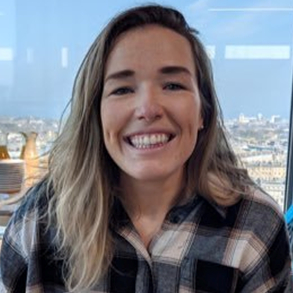Fiona Hill’s story is an incredible example of widening access.
Hill was born in the old mining town of Bishop Auckland, northern England during the post-industrial decline in the UK. In her 2021 personal memoir, There is Nothing For You Here, Hill tells of her family’s struggles after her father lost his job as a miner and documents her path from this humble background to advisor to the US President. Hill’s story involves school and university widening access initiatives and scholarships and sees her obtain degrees from the University of St Andrews and Harvard.
Her story also includes other early influences including her father’s advice, summarised in her biography’s title, and her cousin who had gone to university as a childhood role model. These informal influences give insight into how access to university can be achieved for those without the “traditional student” background.
Universities play a vital role in promoting social change and widening access to higher education, but outreach activities usually begin when students reach the pipeline to making post-school choices. By then, all the evidence indicates that there have been significant influences on life trajectory that determine if they reach this point, and these are hard to overcome.
The case for early intervention
Children as young as seven have already restricted their job or life choices based on their gender, ethnicity, or social background. Additional levers need to be utilised to promote social change earlier in a child’s development to put university and the associated social and economic gains onto their horizons.
Early maths development, for example, is a proven predictor of future academic success. The importance of early maths skills – beginning school with a knowledge of numbers, number order and other rudimentary maths concepts – was found to be paramount in a study of more than 35,000 preschoolers in England, the United States and Canada. Additionally, this mastery of early maths skills doesn’t just predict future maths achievement, it also predicts future reading achievement.
A factor in this early development is the educational experience of parents, and more significantly, mothers. The education level of a child’s mother impacts whether a child has the ambition to succeed academically and how far they will go. A University of Michigan study found that, rather bluntly, if you want your kids to go to college, present yourself as a good role model by making sure you finish your education first. Which is, obviously, easier said than done. This is supported by the Drawing the Future 2018 report that found parents and other extended members of the family were the most influential in defining children’s career aspirations.
The Effective Provision of Pre-School Education (EPPE) study found that a child’s home learning environment has a greater impact on overall development than parental income, occupation or class. This means that the home environment provided by parents who have higher education themselves plays a significant early role in determining the education potential and success of their children.
It feels discouraging since this is a hard (and busy!) stage to influence but it means that tools aimed at recreating this home environment for children who don’t have it naturally can positively influence life trajectory. External sources really need to reach these children at pre-school stages so fewer children miss out on this positive, potentially essential, early influence.
What works?
Benefits of early intervention by external sources, providing that “cousin who went to university” influence for those without it, are already demonstrated by some programmes. The I Can Be programme introduces seven and eight year old girls to the world of work and to inspiring women with the aim of helping them to discover opportunities around them.
High quality early years education programmes are also shown to have positive effects, finding sustained improvement in the likelihood of achieving more than five GCSEs at grades A-C for children who attend. Let’s Do Engineering, a project that provides resources aimed at engaging three to seven year olds with engineering to diversify entrants to the profession, is an industry specific example of combining both of these types of interventions – the educational and aspirational.
Initiatives such as these are key. Integrating university owned pre-school maths content into home life in identified areas of need and sustaining this throughout early years could positively impact long-term educational and occupational outcomes. These not only provide additional and necessary maths skills but would introduce university study to young children more likely to be unfamiliar with higher education.
Parental education is also important. Offering support to parents of children aged 0-5 who haven’t been to university, encouraging them to return to higher education in a flexible way, would also help improve the home learning environment of these children furthest from university.
This is a snapshot of some of the research showing the importance of early years as a key stage in ambition and education development. Universities invest considerable resources to ensure that widening access students are successful once they reach university. These early years interventions would not only help widening access initiatives reach more people but would also make their transition into university smoother.
Universities already do so much to encourage students from underrepresented groups to higher education but thinking of early intervention strategies can help universities become more visible and viable to more people.
At Access all areas – getting in and getting on we’ll assess the current access and participation landscape and consider what will need to change in terms of outreach, information, advice, and guidance, partnerships and pathways between providers, and on-course student support to sustain and grow education opportunity in the years ahead. On Tuesday 10 May at the Mermaid in London: register now.













